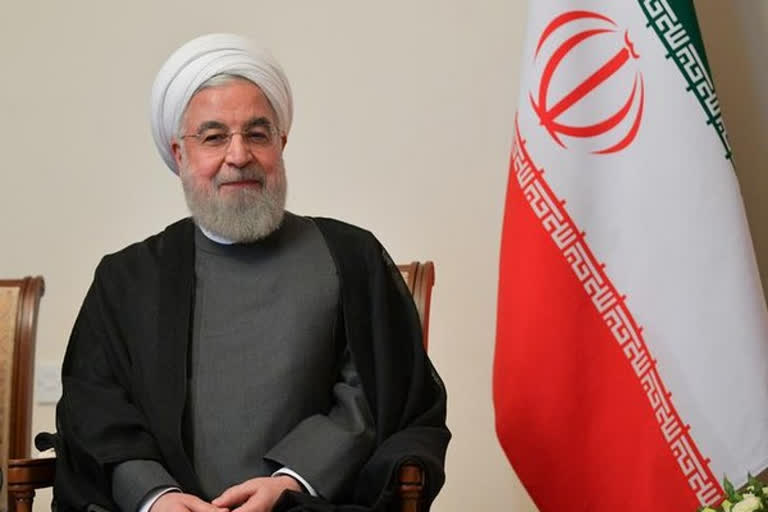Nicosia: On October 18, the UN Security Council arms embargo imposed on Iran expired and now Iran is at liberty to buy and sell conventional arms. Undoubtedly, Tehran scored a diplomatic victory against the United States which tried hard to extend the embargo. The lifting of the embargo allows Iran to buy and sell military equipment, including tanks, helicopters, armoured vehicles, combat aircraft and heavy artillery. The US Administration argues that arms sales to Iran still violate United Nations resolutions and threatened to impose sanctions on individuals and entities involved in such deals, but without the support of other countries, they will have only a partial effect.
"Ironically, the expiry of arms-transfer restrictions is likely to have a limited effect on actual transfers of conventional weapons," says Oliver Meier, a senior researcher at the Berlin office of the Institute for Peace Research and Security Policy. "Most suppliers of weapons to Iran will continue their restrictive arms-export policies."
Iranian President Hassan Rouhani said on October 14 that now Iran will be able to sell its weapons to whoever it likes and "buy arms from anybody we want. We fought with the US on this issue for four years. America was exerting itself to prevent this day from coming, but thanks to the endeavours of our diplomats the US failed." For his part, Javad Zarif, the Iranian Foreign Minister, wrote on Twitter: "Today's normalisation of Iran's defence cooperation with the world is a win for the cause of multilateralism and peace and security in our region."
Read:| US says all UN sanctions on Iran restored, but world yawns
It should be mentioned that on October 19, the Iranian Minister of Defence General Amir Hatami flew to Moscow reportedly to discuss the purchase of the S-400 system, T-90 tanks, the advanced SU-57 stealth fighter-jet and several missile systems. Hatami, however, has made it clear that Iran intends to sell more weapons than it will purchase. The Iranian government clearly said that it plans no "buying spree," as it can now in theory purchase weapons to upgrade military armaments dating back to before its 1979 Islamic Revolution and sell its own locally produced gear abroad.
Obviously, the Tehran government will not rush to buy conventional weapons form Russian and Chinese suppliers. Iran's defence budget is quite small compared to its rivals. The Stockholm International Peace Institute says that Tehran's defence budget is just USD 12.6 billion, compared to US USD 732 billion, Saudi Arabia's USD 61.9 billion and Israel's USD 20.4 billion. If Iran attempts to increase substantially its military capacity, the United States, European countries and other arms suppliers can flood Tehran's rivals in the Middle East with more advanced weapons. Furthermore, it is doubtful if Russia and China would sell sophisticated weapons to Iran, as long as it continues its antagonistic rhetoric against its neighbours, and in the light of the fact that Moscow and Beijing have good relations with Saudi Arabia and Israel.
Russia and China are well aware that the US is quite sensitive about arms sales to Iran and is determined to impose sanctions on entities that ignore its wishes. Ali Reza Noori, Assistant professor of regional studies at the Shahid Beheshti University, Tehran, says that the US will apply unilateral sanctions. "Violating these sanctions would be highly costly for Russia and China. Therefore, they will not jeopardize their interests by engaging with Iran and confronting the US."
The Islamic Republic, although facing an arms embargo and crippling US sanctions has managed to produce its own weapons and invested heavily in developing its own ballistic missiles. The CIA claims that Iran has the largest missile arsenal in the region, most of them capable of carrying nuclear weapons. It also manufactures fighter jets and drones, which have proved to be very effective in the Syrian conflict.
Some analysts say that Iran would now enter a period of reduced restrictions and may be able to reap the benefits of the Joint Comprehensive Plan of Action (JCPOA), commonly known as the 2015 Nuclear Deal. They add that lifting restrictions in the next stages in 2023, 2015 and 2030 could be done more efficiently.
Read:| Turkey criticizes US decision to lift Cyprus arms embargo
Farhad Rezai, visiting professor of international relations at York University in Toronto, wrote in an article that it is uncertain whether Iran's exports of conventional weapons will amount to much. He also pointed out that "Iran has made remarkable progress in producing domestic military weapons and hardware, meaning it may not rush to rebuild its conventional military arsenal by purchasing new arms from foreign suppliers. However, Iran will stand to profit from selling its locally produced military equipment to neighbouring countries."
"While financing new arms purchases in the face of declining oil revenues due to sanctions and the global coronavirus clampdown seems difficult, Iran's experience in circumventing sanctions and advancing its military plans under pressure shows that it can fix the problem," Alireza Noori says and adds: " In recent years, improving Iran's military capabilities under sanctions in missiles and drones field and electronic warfare, which were reflected in Iran's attack on Ain al-Assad base (US facilities in Iraq, days after the assassination of top Iranian Commander Qassem Soleimani), the downing of US drones and military action in Syria show that this process will continue."
ANI



